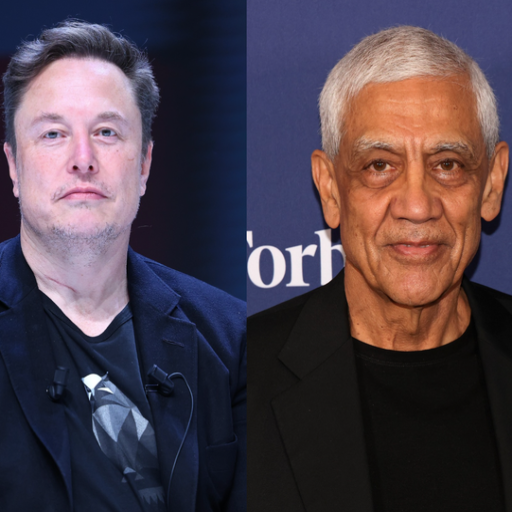The question of public reaching of unrestricted natural areas has been ongoing for some time especially where private property rights and the rights of the community can be called into question. This issue came to the fore recently when Elon Musk blamed Silicon Valley venture capitalist Khosla for placing the public in a political socio-economic dilemma. This follows the public discomfort for having to choose between a personal freedom and a collective fight for the same space and its resources. In this blog we will look at the events in a more detailed manner, the discourse and the counter discourse as it were, and the pressure of the outcome on the use and management of public land and public accountability.
What’s the controversy between Elon Musk and Vinod Khosla?

How did Elon Musk become critical of Vinod Khosla in the first instance?
Alon Musk stated that beach access to everyone is a natural right, opposing Vinod Khosla’s endeavors to prohibit public access to Martins Beach that is located in California. Musk emphasized the very reason why natural areas like beaches shouldn’t be fenced, as they belong to all and should always be open for the public, alongside critics of Khosla calling him out for his hypocrisy putting private gains above public rights.
What controversy is associated with beach access in relation to Khosla?
It’s worthy to note that Khosla acquired land that has the only road that connects to Martins Beach which as a result leads to fencing off the said land which does hold a road and can users travel to get to the beach locally. Usage of such a tactic by Khosla, especially on that region angered many locals in California, let’s not forget to add environmental advocates who have been known for being active during that time. Keeping public access to the beach on that throttled Khosla’s expansionist ideas’ tho heavily ignoring California law which allows access to many, can most of the time act like a buffer against Khosla. The war only continued as Khosla along with many could put arguments that saying no trespassing lows does push past state costal laws, to add severity to the rule, many of courts sided with Khosla and made expenditures here and there so Khosla remains without modification.
What was the reaction of Elon Musk to the sign that read: No Plebs Allowed?
Elon Musk’s views on the “No Plebs Allowed” sign are understandable, as he even posted the picture himself and made some comments about it. He despised that the symbol was posted in such a manner, noting that it was a blatant demonstration of elitism. He even went as far as berating the need for the sign, arguing that it was an utter disrespect to the public to understand such a need in the first place, and that it encouraged the idea of an elite few monopolizing nature. Musk’s case further complements his claims about the need for the general public to have beachheads and recreation sites, and considers hushed voices over the privatization of beachheads. His remarks sparked massive controversy, one that worked with so many since there were those on the other side of the fence that thought the sign was an insult to public access.
What are the details of Vinod Khosla’s beach access restrictions?

Which beach is close to Vinod Khosla’s house?
The beach that is close to Khosla’s house is credited to be a place that many have gone to before, the place goes by the name of Martins Beach it cuts across San Mateo County, California and has also been part of multiple debates that revolve around people wanting to have access to the beach linguistically the arguments have revolved around access to the beaches being a right of the people whereas access to private property is not, the beach is understandably important.
How has Khosla limited the general public from accessing the beach?
Khosla legally ensured that there was little access to the beach but did make visits, the reasoning behind the visits was dry, the access he claimed had private ownership and did also go on to mention that there was little use of the road which has been there for the public for an eternity, trespassing signs along with gated locks were added but still reliably stating that no beach access could be gained, these actions were countered but Khosla turned a blind eye, there were plans to expand parking inside facilities but they were hand waved , these events when strung together limited access to the beach and further increased the amount of legal action alongside making it a public debate to whether crossing the road, which Khosla argued crossed his property, was allowed. Most importantly, it is worth noticing that many people arguing about the restriction solely lay the blame on California’s law which provides coastal access to the general public.
Khosla’s beach access controversy raises some interesting legal questions
The crux of Khosla’s controversy concerning access to the beach is the balancing of private property rights with the law to access California’s coastlines. The California Coastline Preservation Act safeguards the public’s ability to reach beaches and coastal regions, even if they are located within or adjacent to privately owned lands. The major source of disagreement was Khosla’s denial of access to the road leading to Martins Beach, which he did without obtaining a coastal development permit. The Khosla beaches lit the fuse of lawsuits by activists and residents who claimed he disregarded the California laws allowing access along its coastline. On multiple occasions, the courts decided that denying access contradicts the law without a permit in place, hence Khosla should give in to the court’s orders. He has, however, contended that the Dominion requirements constitute a violation of his rights as a property owner. The case went all the way up to the US Supreme Court, but the Supreme Court denied certiorari thereby maintaining the decisions of the lower courts which were generally pro-access. The ongoing fight concerning the Khosla beaches is a fascinating case study that raises important questions with regards to the rights of the individual as a property owner versus the rights of the society as custodians of public property.
How has the public reacted to Vinod Khosla’s actions?

What are the reactions against Khosla’s restriction of the beach access?
Khosla’s beach access restrictions abuse the human rights and environment therefore Khosla’s actions are critiqued heavily. Many individuals live in the assumption that it is all about the rich taking advantage and abusing their dominance by depriving the community for their own self. There are activists and residents who feel that restricting access to Martins Beach is Oppressive and goes against the California Coastal Act, which was brought into existence to ensure sustainability of the coastal resources for the people. Furthermore, they say that this act proves to be a threat to other coastal dwellers as it goes against the principle of allowing millions of people to enjoy the use of the coastline despite having restricted access for decades. In addition, they argue that as development progresses, individuals who are disadvantaged by social media will suffer from having access to the coast as well as mental health as coastlines are focal places to recharge the mind. Khosla’s views have attracted unnecessary attention across the globe and court cases have been formed around the issue which in turn shifts the focus towards the more sensitive matter of even broader discrimination.
What consequences have local residents and beachgoers been subjected to?
The easing of restrictions at Martins Beach has greatly affected local residents and beachgoers. Access to the beach was a pleasant place for many members of the community and families, and with the gradual easing of these restrictions, the access has been limited. Also, surfers, anglers, and even nature lovers who found the beach ideal for their hobbies, have been vocal about their displeasure regarding the lack of the necessary resource. However, apart from leisure activities, local communities have reported the feeling of being unfairly socialized and isolated, claiming that privatizing such a revered place goes against the ethos public beaches stand for. In liaisons dependent on the tourism that beaches bring, Affiliated businesses have reported a slump in foot traffic, in turn emphasizing the larger implications of limited access. The issue remains contentious with various residents and beachgoers dealing with pressure of losing a much loved public space while trying to find a practical solution.
What is Elon Musk’s stance on public beach access?

How does Khosla’s conception of public beach access differ from Musk’s?
Musk’s views on public and private beach access, in this case most likely as an asset of real estate value, express the great difference of opinion revolving around Khosla’s point of view. While both Khosla and Musk are successful investors in bay area products, it is apparent from Musk’s comments that he doesn’t intend to limit the accessibility of the beaches and other natural assets to the local community by privatizing them, thus making them exclusive to certain owners. In this context, while Musk seeks business growth and expansion via activities that would, in effect, harm numerous stakeholders, his perspective towards the issues Musk Baasbah — at least with respect to what he stated during the conference — is indeed generous towards equity and natural sustainability. This brings out another stark difference between Musk and Khosla, in this case a blunt fear of unrestrained openness of shared spaces– which Musk views as beneficial to society. There is nothing wrong with showing a fear of the unfettered ability to use shared spaces.
What claims has Musk made regarding the beach access difficulty?
Elon Musk has suggested a reasonable compromise between the public good and the good of the owner of the property in question. He has proposed that state or local governments might acquire or lease the disputed sections of the beaches to make sure that the area is still enjoyed by the public and at the same time, the private landowners are paid off. Furthermore, Musk argued for better legal frameworks to prevent the future privatisation of precious natural resources, providing a logistical opportunity for the different parties involved. According to Musk, by encouraging creativity and constructive discussions, communities can use beaches as an amenity whilst addressing the issues of owners of the private land.
How does this controversy relate to broader issues of wealth and public access?

What, in your opinion, can be inferred about billionares and social properties in relation to this situation?
This circumstance accentuates the context in which the issues of money, power and public issues are managed. Wealthy people or billionaires as a result of their immense wealth advantages invariably find themselves in a position to control or monopolize the ownership of natural and social resources. Some even go to the extent of investing in their companies making resources publicly available and herding environmental protection. Others would rather focus on themselves or their company’s backers at the expense of the greater good. This controversy regarding the question of who should be allowed access to the beach demonstrates the pressing need for policies which retain equal control of the resources in question without regard to individual wealth. It does raise unsettling issues regarding the question of so-called accountability of wealthy people in our times when wealth is so disparate and social justice so fragile.
How does this situation compare with other situations where there was a restriction to beach access?
Problems of limited access to the beach are not a problem on its own and can be seen in several locations across the world. For example, in California, there have been incidents where rich stakeholders built homes making it difficult for them to have access to public beaches even when federal policies existed like the California Coastal Act that ensured access for the general population, California Coastal Act. In the same way, in Hawaii, there have been continuous controversies regarding private beach resorts that are claiming ownership of what is legally classified as public beaches and are using development of the resorts as a justification to limit access to the beaches. Such cases deal with the common conflict between the property rights of people and the requirement of the government to make sure the members of the public have access to the resources. They serve as a reminder that maintaining recognition of the public right to an environment to its natural resources is not solely a question of legal frameworks, but in the first place, its practical implementation and concern of the community. Once these moments are compared, it becomes clear the main problem is over how to assure fairness between the private right and the public right to utilize and appreciate the same.
Reference sources
Frequently Asked Questions (FAQs)
Q: What is the bone of contention regarding Vinod Khosla and public beach access?
A: Venture capitalist Vinod Khosla is said to have denied access to a beach which is said to be a public beach near his home in California. This action brought condemnation from tech billionaire Elon Musk and thus, expanded on the right for access and use of the oceans, and stimulation of the conservation of the beaches.
Q: How did Elon Musk come out in defense of the public beach when Khosla was preventing access to it?
A: Elon Musk posted on his twitter account an image that had a message on the closed beach which read “Beach Closed, Keep Out” and proceeded to criticize Khosla. Musk rebuked Khosla for his unabashed restrictive policies against public use of the beach and the ocean.
Q: What specific area are the parties located in dispute over?
A: The specific area in the highlighted case is the half moon bay in California, known as Martins Beach. It is open to the public, though it is owned by Vinod Khosla as part of an acquisition deal involving $32.5 million which also included the sole access to the beach.
Q: In your opinion, or from a policy perspective, what is the role of the general public’s access to this beach?
A: The reason general public access to beaches is of great importance is for ocean and beach preservation as well as ensuring that the citizens enjoy access to the common pool resources. It also calls into question the relationship between existing private property rights and the public’s right to use the coastal space.
Q: Who has expressed views on issues similar to this one, Larry Musk or Khosla and how did their other opinions on social issues influence this controversy?
A: Irrespective of the fact that this conflict is about beach wear, both Musk and Khosla have addressed concern regarding other social issues. For example, Musk made a remark concerning the movement of settlers to less populous towns in the country, which some people have cited as comparable to the relocation of the beach access right.
Q: What are the consequences of the Matter of the Location of Long’s legal case concerning California’s access to beaches?
A: As it stands out in California, the Coast Act and Access to the Coast policies are now in the forefront of the case, which was previously in the backdrop of private owned property rights. It could shape any future policies and legal developments concerning access to coastlines in the region, as certainly has been the case in other states.







